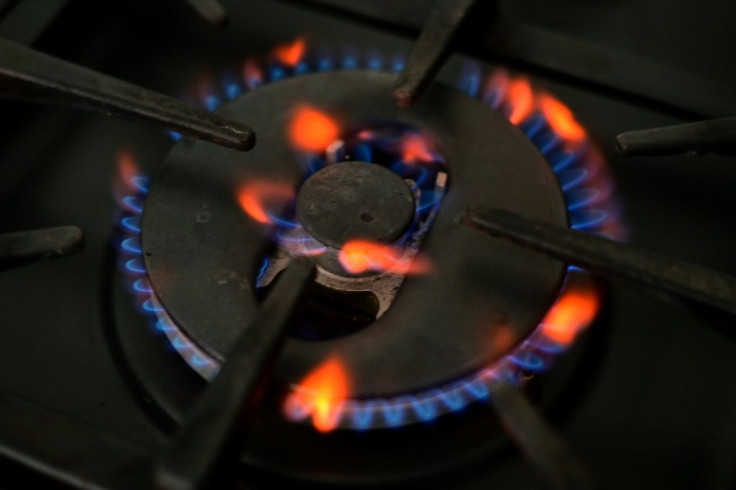European Stocks Suffer From Gas Price Spike, US Default Risk Ebbs
Wall Street stocks rallied Wednesday as the near-term risk of a US government default ebbed, though European bourses slumped as spiking natural gas prices exacerbated inflation worries.
US stocks appeared headed for another day of losses at the session's start, amid worries over inflation and continued political uncertainty in Washington.
After trading in the red much of the session, stocks did a 180-degree turn following Senate Minority Leader Mitch McConnell's announcement that Republicans would allow Democrats to vote for temporarily lifting the ceiling on how much the US government can borrow.
McConnell's offer punts the problem to December, averting risk of imminent default and giving the ruling Democrats time to prepare a longer term solution.
"For now, at least, this disaster du jour just got moved to the back-burner," said Art Hogan, chief strategist at National Securities.
Hogan said the market could be in line for more volatility in the weeks ahead, with the Federal Reserve expected to taper stimulus payments soon and investors anxious about the upcoming earnings season.
The Dow Jones Industrial Average ended up 0.3 percent at 34,416.99, more than 550 points above its session low.
Earlier, European markets tumbled following a brief 25 percent jump in gas prices on the continent to record levels.
"Natural gas prices have climbed to new peaks... as insufficient levels of inventories ahead of the winter season drive concerns for a spike in inflation and energy prices for consumers," XTB analyst Walid Koudmani told AFP.
"These supply constraints could translate into higher costs of fuel moving into the winter months, a prospect which could further slow down economic recovery and worsen moods across markets."
However, prices eased later Wednesday as Russian President Vladimir Putin ordered state-controlled gas company Gazprom to maintain shipments through Ukraine.
Some critics have accused Moscow of intentionally limiting gas supplies to Europe in an effort to hasten the launch of Nord Stream 2, a controversial pipeline connecting Russia with Germany.
"News that Russia will boost gas supplies has steadied market nerves a little this afternoon and helped temper those record price hikes, but businesses are worried and investors are, too," said AJ Bell financial analyst Danni Hewson.
At the same time, oil has vaulted higher after OPEC and other major producers opted this week against increasing output by more than previously agreed -- despite tightening supplies and resurgent demand.
Runaway gas prices are widely expected to ratchet up demand for crude, further spooking markets.
"To put it into context, benchmark gas prices are trading at the equivalent of more than $200 per barrel of oil," said PVM analyst Stephen Brennock.
"This should further encourage gas-to-oil switching and exacerbate the current supply deficit in the oil market."

Oil prices pulled back from multi-year peaks following a larger-than-expected increase in US crude inventories.
New York - Dow: UP 0.3 percent at 34,416.99 (close)
New York - S&P 500: UP 0.4 percent at 4,363.55 (close)
New York - Nasdaq: UP 0.5 percent at 14,501.91 (close)
London - FTSE 100: DOWN 1.2 percent at 6,995.87 (close)
Frankfurt - DAX: DOWN 1.5 percent at 14,973.33 (close)
Paris - CAC 40: DOWN 1.3 percent at 6,493.12 (close)
EURO STOXX 50: DOWN 1.3 percent at 4,012.65 (close)
Tokyo - Nikkei 225: DOWN 1.1 percent at 27,528.87 (close)
Hong Kong - Hang Seng Index: DOWN 0.6 percent at 23,966.49 (close)
Shanghai - Composite: Closed for a holiday
Euro/dollar: DOWN at $1.1562 from $1.1598 at 2100 GMT on Tuesday
Pound/dollar: DOWN at $1.3587 from $1.3629
Euro/pound: DOWN at 85.07 from 85.10 pence
Dollar/yen: DOWN at 111.41 yen from 111.46 yen
Brent North Sea crude: DOWN 1.8 percent at $81.08 per barrel
West Texas Intermediate: DOWN 1.9 percent at $77.43 per barrel
© Copyright AFP 2024. All rights reserved.











